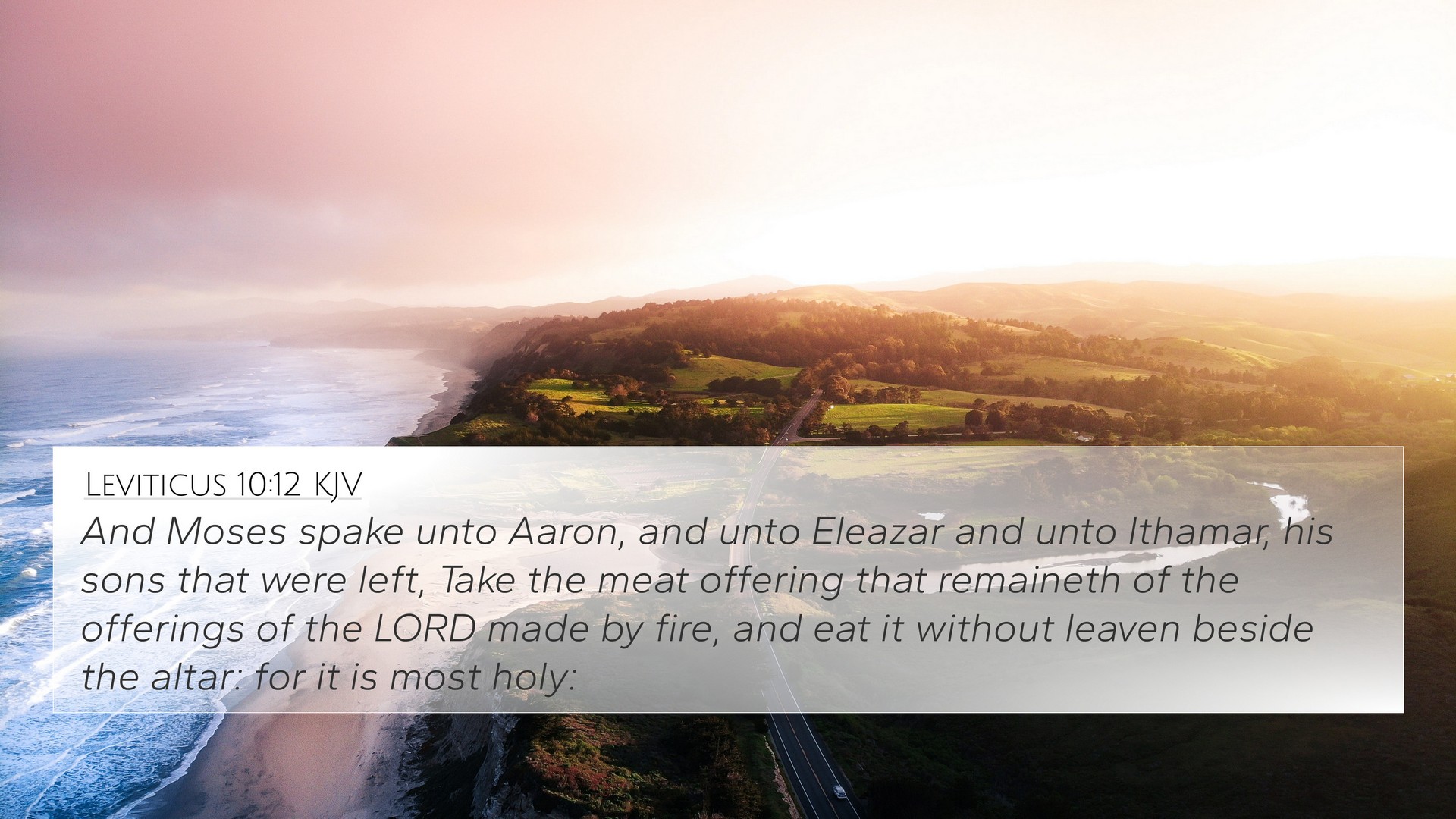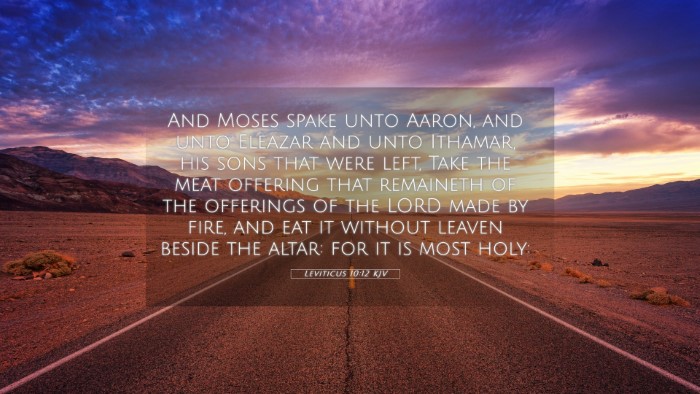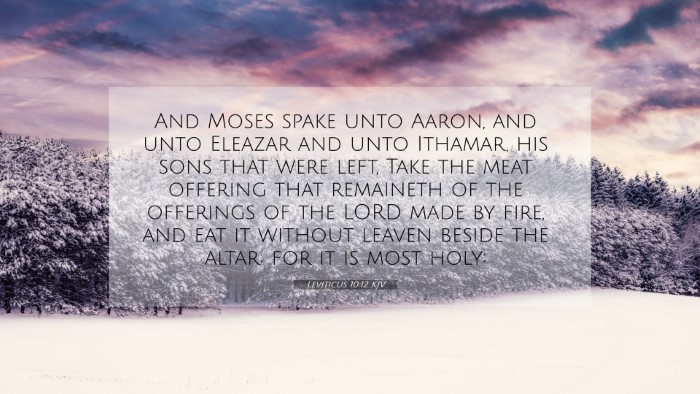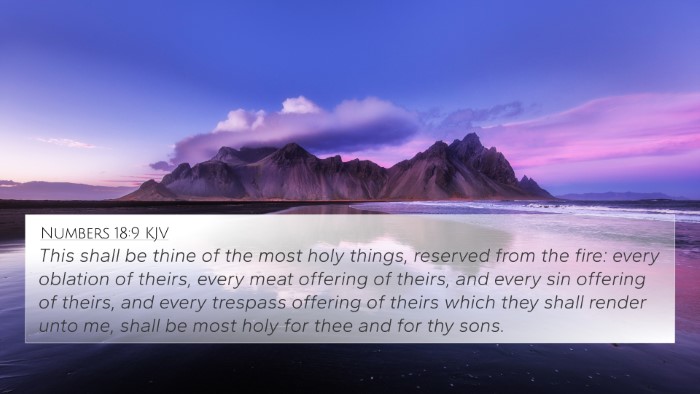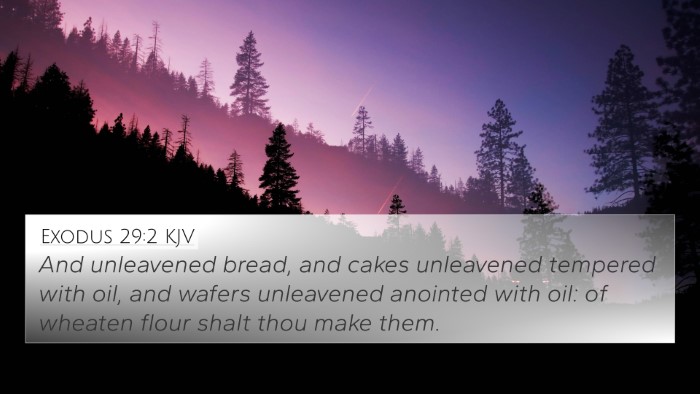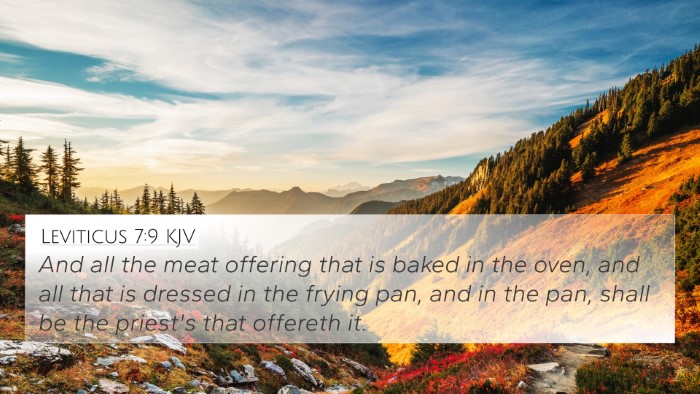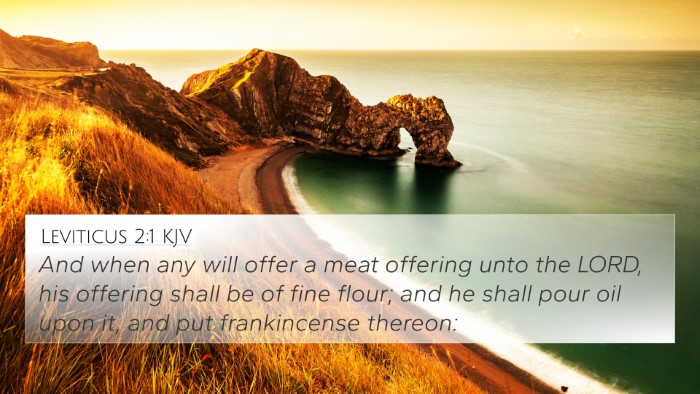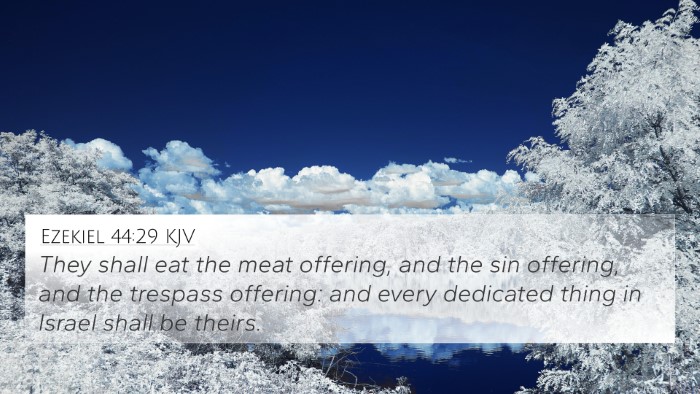Understanding Leviticus 10:12
The verse Leviticus 10:12 states:
"And Moses spake unto Aaron, and unto Eleazar and unto Ithamar, his sons that were left, Take the meat offering that remaineth of the offerings of the LORD made by fire, and eat it without leaven beside the altar: for it is most holy."
Context and Summary
This verse comes after the tragic event of Nadab and Abihu, Aaron's sons, who offered unauthorized fire before the Lord and were consumed by divine judgment. The context highlights the severity of adhering to God's instructions regarding worship and sacrifice.
Commentary Insights
- Matthew Henry: He emphasizes the importance of holiness in worship. The meat offering signifies dedication to God, and its consumption by the priests is a sign of the sanctified lifestyle expected of them.
- Albert Barnes: Barnes notes that this instruction underlines the continuity of priestly duties after the deaths of Nadab and Abihu. It also illustrates the necessity of remaining solemn and respectful in the pursuit of God's guidelines.
- Adam Clarke: Clarke suggests that this verse serves as a reminder to the surviving priests of their sacred obligations. He notes that the offerings had to be consumed in a designated manner to maintain their holy nature.
Thematic Bible Verse Connections
Leviticus 10:12 connects with several other verses in the Bible, illustrating themes of holiness, obedience, and the divine order of worship:
- Leviticus 6:16: Discusses how the priests are to eat of the sin offering in a holy place.
- Exodus 29:29: Covers the clothing of Aaron and his sons and the role in their consecration.
- Numbers 18:9: Details the portion of holy offerings that belong to the priests.
- Hebrews 5:1: Shares insight on priests being appointed for men in their relation to God.
- Deuteronomy 12:32: Warns against adding or taking away from God’s commands.
- 1 Peter 2:9: Speaks to the holiness of believers as a royal priesthood.
- Romans 12:1: Discusses presenting one's body as a living sacrifice, holy and pleasing to God.
Bible Cross-References
When studying Leviticus 10:12, the following cross-references provide deeper insights into its implications:
- Exodus 30:10: Discusses the atonement of the altar by Aaron once a year.
- Leviticus 7:6: States that the flesh of the peace offerings must be eaten in a holy place.
- 1 Corinthians 10:21: Warns against participating in the Lord's table while also partaking in other altars.
- Matthew 5:23-24: Teaches about reconciling with a brother before offering gifts at the altar.
Conclusion
In conclusion, Leviticus 10:12 not only underlines the seriousness of priestly duties but also reinforces the necessity of adhering to God's commands in worship practices. An understanding of this text through comparative verse analysis and thematic connections enriches one's spiritual insight and reverence for divine standards.
Tools for Bible Cross-Referencing
To fully engage with Leviticus 10:12 and its related verses, various tools and methodologies can enhance study:
- Bible Concordance: Use a concordance to find similar themes and words.
- Bible Cross-Reference Guide: Such guides can direct you to relevant verses that share thematic elements.
- Cross-Reference Bible Study: Leveraging study materials that facilitate connections between verses can deepen understanding.
- Bible Reference Resources: Utilize different Bible reference materials to facilitate a thorough cross-referenced study.
